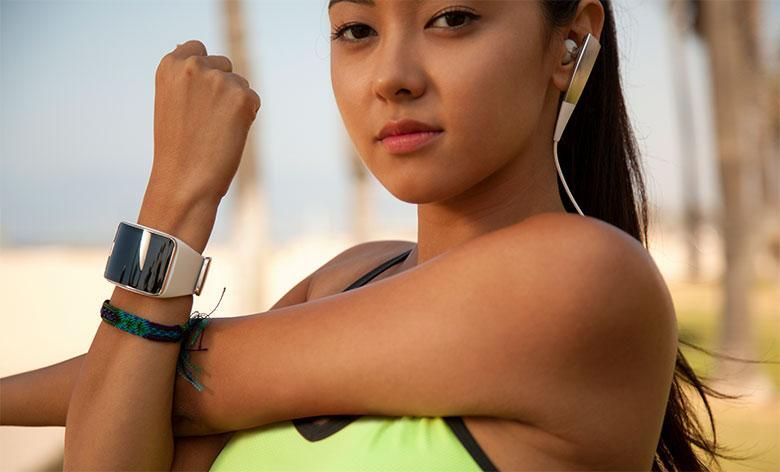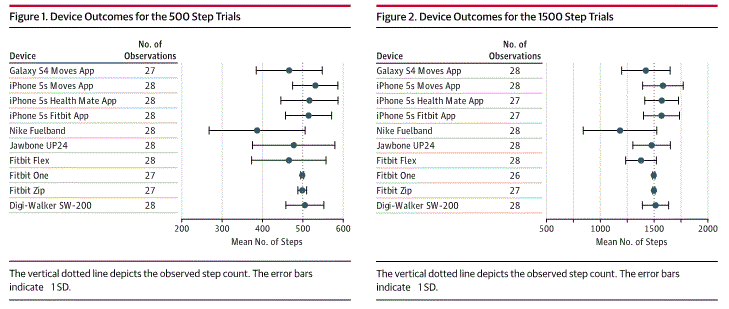As wearables continue to catch on, fitness-tracking software’s been rising in prominence, with systems like Apple’s HealthKit and Google Fit arriving. And while many of us may associate those apps with smartwatches and fitness wearables, it’s not like the sensors in those wristbands are unique to that hardware, and the same kind of accelerometers live in our phones themselves. But are you still better off using a wearable, or is your phone good enough? A new study attempts to find out just that.
A research letter just published in the Journal of the American Medical Association looks at the step-tracking performance of both a number of popular phones and fitness trackers. While the phones showed a bit more variation than the dedicated wearables, sometimes coming up high and sometimes low, on average they were pretty much in the right ballpark. The Galaxy S4 was a little low, and the iPhone 5S a little high, but neither performed much outside the range of other trackers.
Of the wearables tested, Fitbit models like the One and Zip showed some of the most consistent, accurate output. That said, not all wearables were so reliable, and the Nike FuelBand brought in some wildly inconsistent data, sometimes failing to register hundreds of steps. But that one’s really the exception, and for the most part these devices were close to the mark.
What should be your takeaway from all this? A fitness tracker doesn’t necessarily guarantee more accurate data, though some brands are indeed quite precise. And for many of us, using our phones as fitness trackers might be good enough. Keep in mind, this data is just looking at sensor accuracy, and doesn’t consider the very real fitness tracker benefit of convenience, and freeing our phones from unplanned exercise-related damage.
Source: American Medical Association
Via: GigaOM


